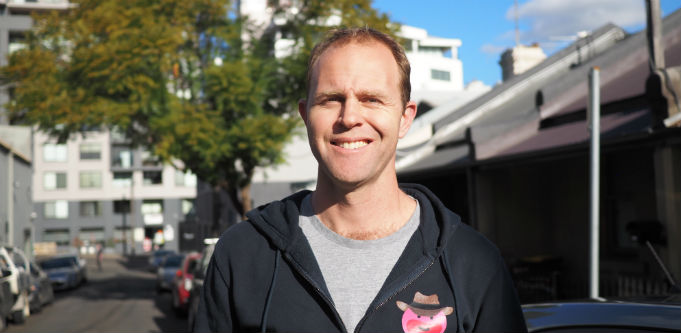
Car Next Door co-founder and chief executive Will Davies. Source: Supplied.
Amid the federal budget and the new laws criminalising companies that do not remove “abhorrent” video content, last week the government quietly opened its consultation into employee share schemes for small businesses and startups.
Originally proposed in November last year, the changes would increase the limit of financial products available to employees from $5,000 to $10,000, and introduce the ability for employees to purchase additional products later.
It would also remove the requirement for companies offering a scheme to disclose commercially sensitive information.
Between the furor of last week and the ongoing discussion around the so-called AA Bill, it may feel the startup world has bigger fish to fry right now.
However StartupAus chief executive Alex McCauley says part of advocacy is about consistency. Changes to the employee share scheme are something StartupAus has been requesting for some years.
“There are big issues on a narrative level across the sector that we really have to work on,” McCauley tells StartupSmart.
“But we have got to make sure we’re focusing on improving the place for startups and tech companies,” he adds.
“We can’t be in a position where we’re only trying to put out fires.”
Speaking to StartupSmart when the proposed changes were first announced last year, McCauley said he welcomed the reforms, and the conversation around employee share schemes.
Such schemes are tried and tested globally, he said, and “any increased abilities to do that make Australian startups more competitive”.

StartupAus chief executive Alex McCauley.
However, he also cautioned founders the process of reform could take some time, even then raising the question of whether the changes could feasibly be made before the election.
Now, that is “almost impossible from a technical perspective”, McCauley says.
“We will have to wait and see what happens in May before we get any action.”
That said, he also points out the consultations will happen in the Treasury, with the same people working on them no matter who is in power.
“We can build on that conversation,” he says.
McCauley is confident the recent trend of legislation passing without consultation will be “an anomaly rather than a trend”.
Going back and amending laws after they’re passed is not good governance, he stresses.
“Hopefully after the election in May we will have a little more stability,” he adds.
“Still a fair bit of shit”
For one startup that uses an employee share scheme, while the proposed changes are a step in the right direction, as they stand they don’t go far enough.
Car sharing startup Car Next Door offers options to all of its full-time staff members.
“We think it’s a really good way to help us attract and retain talent,” co-founder and chief executive Will Davies tells StartupSmart.
“It gives us a good way to compete against bigger companies.”
However, when setting up the scheme, the startup faced “heavy” compliance and legal fees, ultimately paying something between $3,000 and $4,000.
The intention of reforming the scheme is to “give employees equity in the business as easily and friction-free as possible”, Davies notes.
“I think this plan goes some way towards that, but it looks like there’s still a fair bit of shit in it,” he adds.
“They could have gone a lot further.”
In an ideal world, Davies says, startups should be able to access a standardised template, or set of documents, allowing them to easily set up their own scheme without a “massive investment in time and money”.
As it stands, you can set up a company, with all the legal structures required, for about $500, he says. It’s a simple process, and setting up an employee share scheme should be the same.
And having a good system in place that encourages startups to offer shares or options to their employees will help the Australian tech sector as a whole, Davies says.
“The purpose is to really align employees with the long-term growth of the business,” he explains.
This alignment “means people will hang around longer, and we can attract people from overseas”, he adds.
“Not only do we stop the brain drain going out, we attract more in.”
NOW READ: Budget 2019: Billions for STEM commercialisation, but only one mention of “startup”
NOW READ: Why startups and “intellectual capital” are the future of Aussie exports


COMMENTS
SmartCompany is committed to hosting lively discussions. Help us keep the conversation useful, interesting and welcoming. We aim to publish comments quickly in the interest of promoting robust conversation, but we’re a small team and we deploy filters to protect against legal risk. Occasionally your comment may be held up while it is being reviewed, but we’re working as fast as we can to keep the conversation rolling.
The SmartCompany comment section is members-only content. Please subscribe to leave a comment.
The SmartCompany comment section is members-only content. Please login to leave a comment.